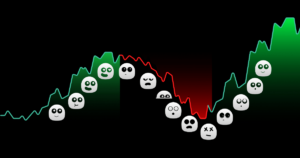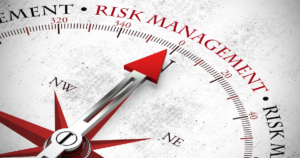Introduction
In the world of forex trading, understanding the concept of margin calls is essential for managing risk and protecting your trading account. A margin call occurs when the equity in your account falls below a certain threshold, prompting your broker to take action to protect themselves from potential losses. In this comprehensive guide, we will delve deeper into the topic of margin calls in forex, exploring key concepts, examples, and strategies to avoid them. By the end, you will have a solid understanding of margin calls and be better equipped to navigate the forex market with confidence.
Table of Contents
- Margin and Leverage: A Foundation for Margin Calls
- What is a Margin Call?
- How Margin Calls Work: An Example
- Managing Margin Calls: Tips and Strategies
- The Role of Stop Out Levels
- Avoiding Margin Calls and Stop Outs: Best Practices
- Frequently Asked Questions (FAQs) about Margin Calls in Forex
- Key Takeaways
1. Margin and Leverage: A Foundation for Margin Calls
Before diving into margin calls, it’s crucial to understand the concepts of margin and leverage. Margin refers to the collateral required by your broker to open and maintain positions in the forex market. It is a percentage of the total trade size, and it acts as a form of security against potential losses. Leverage, on the other hand, allows you to control larger positions with a smaller amount of capital. It magnifies both potential profits and losses.
2. What is a Margin Call?
A margin call is a notification from your broker that your account’s equity has fallen below the required margin level. It serves as a warning sign that you need to take action to restore the necessary margin or risk having your positions automatically closed by the broker. Margin calls are designed to protect both you and your broker from excessive losses.
3. How Margin Calls Work: An Example
Let’s walk through an example to illustrate how margin calls work. Suppose you have an account balance of $10,000 and decide to open a leveraged position with a notional value of $100,000. If your broker has a margin requirement of 1%, it means you need to maintain at least $1,000 in your account as margin.
4. Managing Margin Calls: Tips and Strategies
While margin calls can be stressful, there are several strategies you can employ to manage them effectively. Here are some tips to help you navigate margin calls:
a. Maintain Sufficient Margin:
The key to avoiding margin calls is to ensure you have enough margin in your account to support your positions. This requires careful risk management and monitoring of your account’s equity and margin levels. Regularly assess your trading positions to ensure they align with your account’s margin requirements.
b. Use Stop Loss Orders:
Implementing stop loss orders is a risk management technique that can help limit potential losses. A stop loss order is an instruction to your broker to close a position when it reaches a specified price level. By setting appropriate stop loss levels for your trades, you can minimize the risk of significant drawdowns and margin calls.
c. Consider Lower Leverage:
Leverage amplifies both profits and losses. While high leverage can offer the potential for substantial gains, it also increases the risk of margin calls. Consider using lower leverage ratios to reduce the likelihood of margin calls. It’s important to find a balance that suits your risk tolerance and trading strategy.
5. The Role of Stop Out Levels
In addition to margin calls, brokers often have stop out levels in place. A stop out level is the point at which the broker will automatically close your positions to prevent further losses. When your account’s equity falls below the stop out level, the broker takes action to protect themselves and you from incurring additional losses.
6. Avoiding Margin Calls and Stop Outs: Best Practices
To avoid margin calls and stop outs, it’s crucial to follow best practices for risk management and responsible trading. Here are some key strategies to consider:
a. Educate Yourself:
Develop a solid understanding of forex trading, including concepts such as margin, leverage, and risk management. Continuously educate yourself on market dynamics, trading strategies, and financial news to make informed trading decisions.
b. Set Realistic Expectations:
Set realistic expectations for your trading activities. Avoid being overly aggressive with leverage or taking excessive risks. Adopt a long-term perspective and aim for consistent, sustainable profits rather than seeking quick gains.
c. Regularly Monitor Your Positions:
Stay vigilant and monitor your open positions regularly. Keep an eye on your account’s equity, margin levels, and the overall market conditions. By being proactive, you can identify potential issues and take appropriate action before margin calls become a concern.
7. Frequently Asked Questions (FAQs) about Margin Calls in Forex
Q1: What happens if I ignore a margin call?
Ignoring a margin callcan have serious consequences. If you fail to take prompt action to meet the margin requirements or close positions, your broker may liquidate your positions to recover the funds owed. This can result in significant losses and potentially even a negative account balance. It’s crucial to respond to margin calls promptly to protect your trading account.
Q2: Can I prevent margin calls by depositing more funds into my account?
Yes, depositing additional funds into your account can help you meet the margin requirements and avoid margin calls. By maintaining sufficient margin, you reduce the risk of falling below the required levels. However, it’s important to note that while adding funds can provide temporary relief, it’s crucial to also address the underlying risk management and trading strategy to ensure long-term success.
Q3: Are margin calls common in forex trading?
Margin calls are not uncommon in forex trading, especially when traders utilize high leverage. The forex market is volatile, and price movements can be rapid and significant. Traders should be prepared for potential margin calls and have risk management strategies in place to mitigate their impact.
Q4: Can I negotiate margin requirements with my broker?
Margin requirements are typically set by the broker and are non-negotiable. They are based on various factors such as regulatory requirements, market conditions, and the broker’s risk management policies. It’s important to familiarize yourself with the margin requirements of your chosen broker and ensure you can meet them comfortably.
8. Key Takeaways
- Margin calls in forex occur when the equity in your account falls below the required margin level, prompting your broker to take action.
- Understanding margin and leverage is crucial for comprehending margin calls.
- Effective risk management, including maintaining sufficient margin and using stop loss orders, is key to managing margin calls.
- Regular monitoring of your positions and a proactive approach to risk management can help prevent margin calls and stop outs.
- Education, realistic expectations, and responsible trading practices are essential for avoiding margin calls and ensuring long-term success in forex trading.
In conclusion, margin calls are an inherent part of forex trading, and understanding how they work is crucial for managing risk and protecting your trading account. By implementing effective risk management strategies and following best practices, you can navigate the forex market with confidence and minimize the impact of margin calls on your trading journey. Remember to continuously educate yourself, monitor your positions, and make informed trading decisions to achieve long-term success in forex trading.








